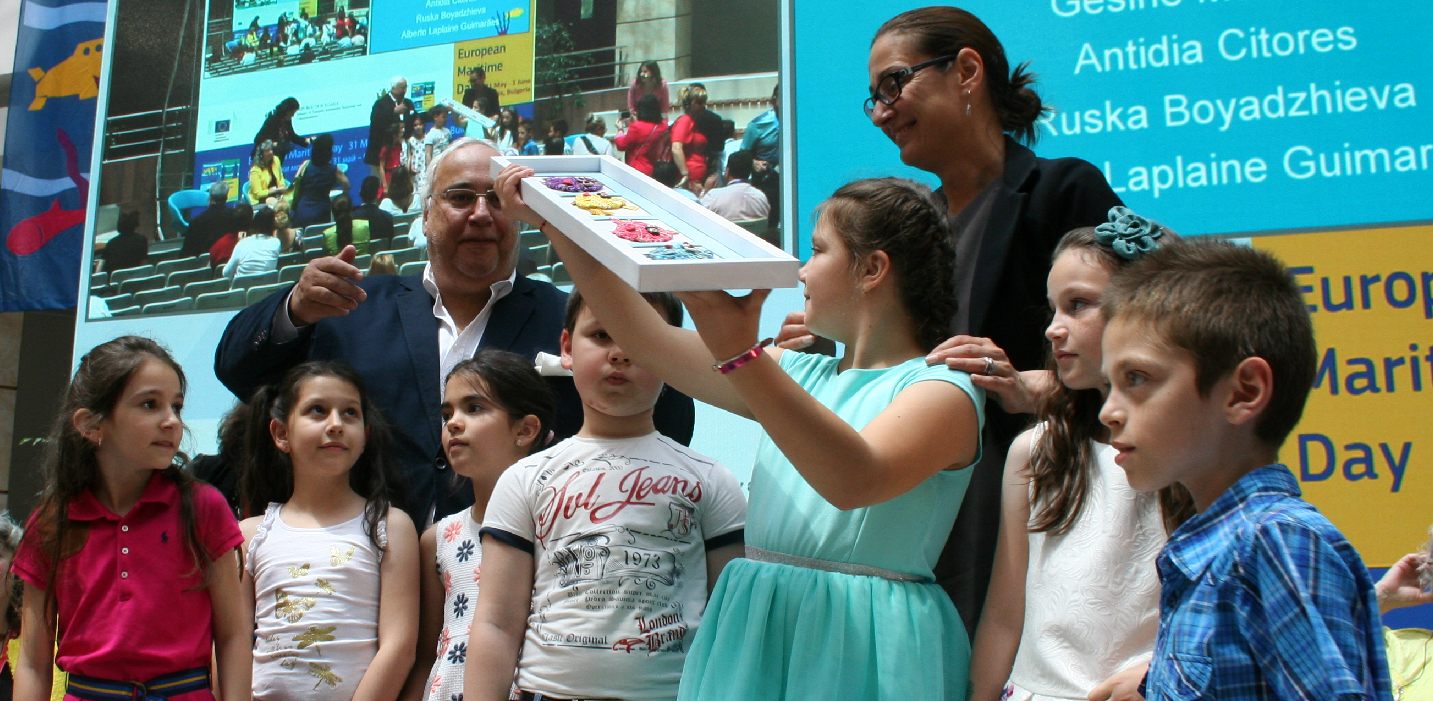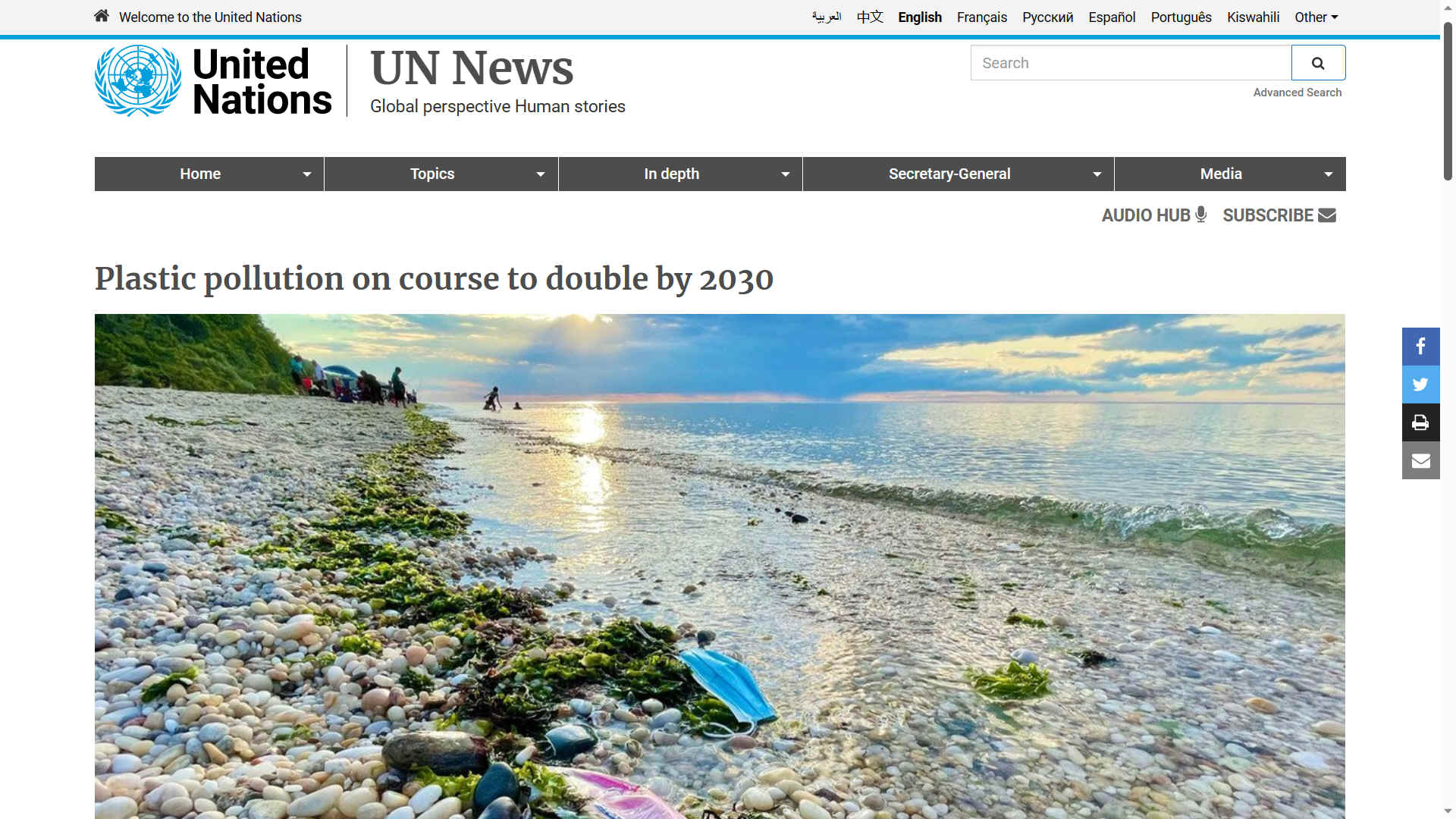|
W H A T I S G R E E N G R O W T H ?
PLEASE USE OUR A-Z INDEX TO NAVIGATE THIS SITE OR SEE OUR HOMEPAGE
HANDOVER CEREMONY - Alberto Laplaine Guimarães is presented with a gift of maritime art from the children of Burgas and Ruska Boyadzhieva. Alberto is the Secretary General of Lisbon City Council and Ruska the Deputy Mayor of Burgas, Bulgaria. Bulgaria reinforced their commitment to blue growth in a ministerial statement to conclude this superb event for which the City of Burgas should be rightly proud. Copyright © photograph June 1 2018 Cleaner Ocean Foundation.
The green economy focuses on environmental protection and renewable energy sources. This can be changing over to LED lighting, driving an eco car or EV, or installing solar panels on a roof. All of these activities reduce reliance on fossil fuels and increase the efficiency of businesses.
UNEP REPORT OCTOBER 2021 - Plastic pollution in our oceans is set to double by 2030, with recycling not enough (we told you so) and global cooperation needed (we told you so again). Don't let the politician spin doctors protract enacting a solution any longer. If shoppers were to boycott plastic wrapped products, apart from the fact they may starve, supermarket suppliers would be forced to switch to paper, glass and metal packaging - or face bankruptcy. The fact politicians allow them to continue as they are tells us that it is the policy makers who are to blame. And, they like it as it is, lots of money for them, backhanders (dividends) or not, taxes as income from plastic products is akin to procurement fraud - for any government involved.
WHAT ARE THE PRINCIPLES OF GREEN GROWTH?
1. The Wellbeing Principle
- It focuses on growing wealth that will support well-being. This wealth is not merely financial, but includes the full range of human, social, physical and natural capitals.
- It prioritizes investment and access to the sustainable natural systems, infrastructure, knowledge and education needed for all people to prosper.
- It offers opportunities for green and decent livelihoods, enterprises and jobs.
- It is built on collective action for public goods, yet is based on individual choices
2. The Justice Principle
- It promotes the equitable distribution of opportunity and outcome, reducing disparities between people, while also giving sufficient space for wildlife and wilderness.
- It takes a long-term perspective on the economy, creating wealth and resilience that serve the interests of future citizens, while also acting urgently to tackle today’s multi-dimensional poverty and injustice.
- It is based on solidarity and social justice, strengthening trust and social ties, and supporting human rights, the rights of workers, indigenous peoples and minorities, and the right to sustainable development.
- It promotes empowerment of MSMEs, social enterprises, and sustainable livelihoods.
- It seeks a fast and fair transition and covers its costs – leaving no-one behind, enabling vulnerable groups to be agents of transition, and innovating in social protection and re-skilling.
3. The Planetary Boundaries Principle
- It acknowledges the limited substitutability of natural capital with other capitals, employing the precautionary principle to avoid loss of critical natural capital and breaching ecological limits.
- It invests in protecting, growing and restoring biodiversity, soil, water, air, and natural systems.
It is innovative in managing natural systems, informed by their properties such as circularity, and aligning with local community livelihoods based on biodiversity and natural systems.
4. The Efficiency and Sufficiency Principle
- It recognises there must be a significant global shift to limit consumption of natural resources to physically sustainable levels if we are to remain within planetary boundaries.
- It recognizes a ‘social floor’ of basic goods and services consumption that is essential to meet people’s wellbeing and dignity, as well as unacceptable ‘peaks’ of consumption.
- It aligns prices, subsidies and incentives with true costs to society, through mechanisms where the ‘polluter pays’ and/or where benefits accrue to those who deliver inclusive green outcomes.
5. The Good Governance Principle
- It is supported by institutions that are integrated, collaborative and coherent – horizontally across sectors and vertically across governance levels – and with adequate capacity to meet their respective roles in effective, efficient and accountable ways
- It requires public participation, prior informed consent, transparency, social dialogue, democratic accountability, and freedom from vested interests in all institutions – public, private and civil society – so that enlightened leadership is complemented by societal demand.
- It promotes devolved decision-making for local economies and management of natural systems while maintaining strong common, centralized standards, procedures, and compliance systems.
-
It builds a financial system with the purpose of delivering wellbeing and sustainability, set up in ways that safely serve the interests of society.
ENEMY OF GREEN GROWTH
At the moment the common enemies of green growth are policies that promote fossil fuels or nuclear power stations. This includes subsidies for shipping bunker fuels and fishing fleets. Blue Growth deals with ocean pollution and sustainable fishing.
GREEN GROWTH STRATEGY
COP 28 set out the accepted methods and timeframe for the transition to clean energy. The aim being to reduce global warming, and do their utmost to meet the 1.5 degree target set at the Paris meeting in 2015 COP21. So far, it has to be said, in the intervening eight years, there has been an increase in the use of gas and oil, with many nations still building coal fired power stations.
#HORIZON EU MISSIONS 2030
PLEASE USE OUR A-Z INDEX TO NAVIGATE THIS SITE OR SEE OUR HOMEPAGE
Copyright © Cleaner Oceans Foundation Ltd (COFL) (Company No: 4674774) January 2024. Solar Studios, BN271RF, United Kingdom. COFL is a charity without share capital.
|


